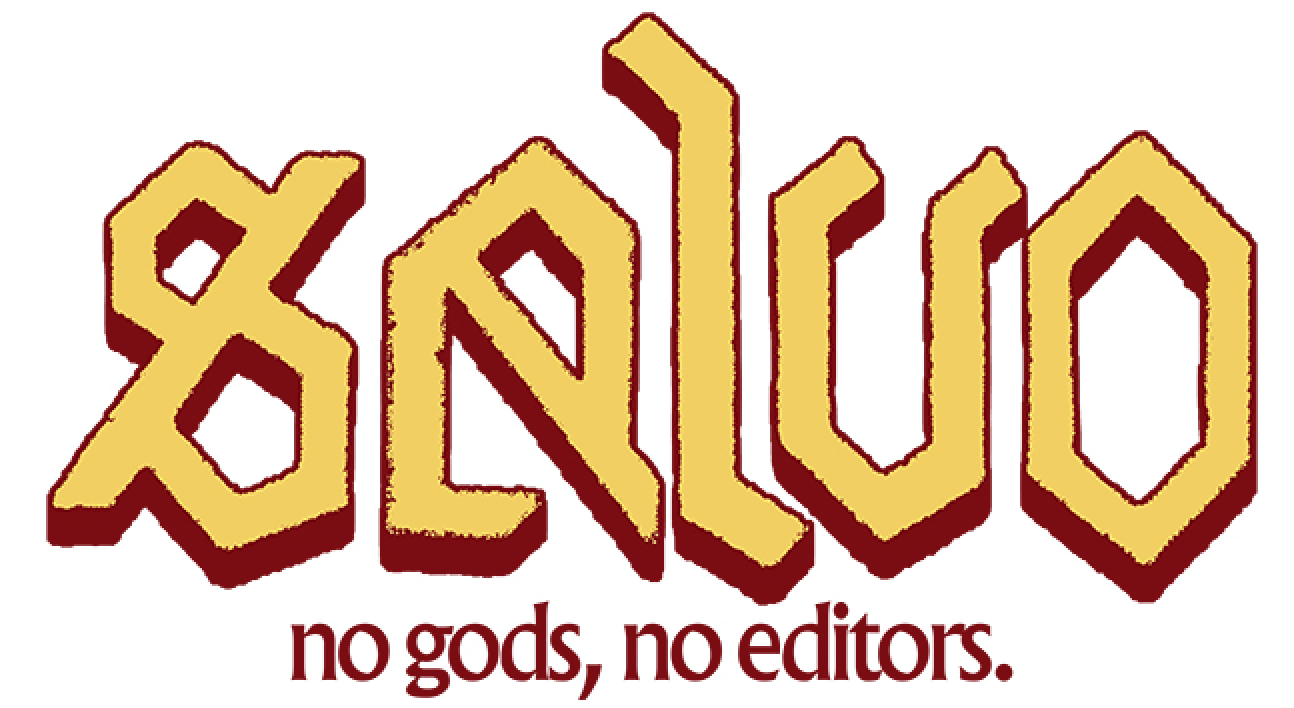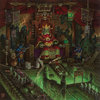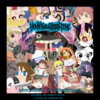Andrew Lee's Anime Grindcore Project is Super Cute—and Dead Serious
What do American grindcore god Jon Chang, Taiwanese funeral rituals, and fictional anime pop punk band Ho-kago Tea Time have in common? Andrew Lee.

What do American grindcore god Jon Chang, Taiwanese funeral rituals, and fictional anime pop punk band Ho-kago Tea Time have in common? At least one thing—or rather, one person.
Andrew Lee is a tireless multi-instrumentalist, master of the Weeb Dungeon (his home recording studio in Northern California ), founder of death metal horde Ripped to Shreds, and, by his own estimation, an enormous anime fan. He's currently got ten (!) active projects and Ripped to Shreds just dropped a killer new record, 三屍 (Sanshi), which deviates from the more historical focus of its predecessors to delve deeper into Chinese and Taiwanese mythology.
Guts and ghosts aside, Lee's other main focus right now is Houkago Grind Time, his wonderfully bizarre anime-themed mincegore project. Mincegore is, of course, a sub-subgenre that marries the manic bounce of classic mincecore with goregrind's swirling toilet vocals; instead of Agathocles-inspired political messaging, though, Lee goes hard on goofy, gruesome anime themes. Humor is obviously a big part of what he's is doing here, but the 34-year-old Taiwanese American is not joking about his anime fandom: that, he takes quite seriously.
"The lyrical themes are because I love anime and know it like the back of my hand," he explains. From the band's name to song titles like "I Like Dubs over Subs" and "Disgrace to the Corpse of Watsuki" to its latest album title, Koncertos of Kawaiiness: Stealing Jon Chang's Ideas, A Book by Andrew Lee, Houkago Grind Time is a labor of love aimed at a hyperspecific audience. It's also super fun to listen to, even if you're not all that immersed in the weeb world. (And if you are,, the band conveniently sells body pillow covers on their merch site).
I first discovered Lee's work through his death metal outlet, and was drawn in by his unapologetically political lyrics and strength in calling out anti-Asian racism in the metal scene. Houkago Grind Time is much, much different, but a delight nonetheless. We all contain multitudes, but only Andrew Lee could pull this shit off.
Check out my conversation with Lee below, which was pulled together across time zones and in slightly more manic than usual fashion (blame me for that—I'm heading to Sweden for a few book tour dates with Horndal next week, and all is chaos).
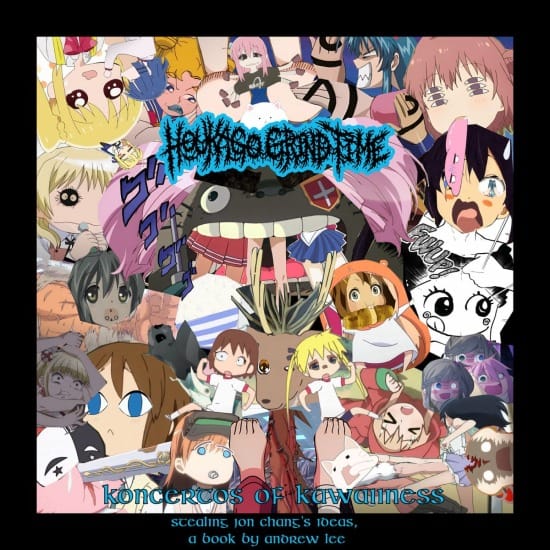
SALVO: You're ridiculously prolific (and I'm going to ask you about at least two of your newest albums) but I am always just amazed at people who can create so much, in multiple styles, without seeming to lose focus or energy. How much of that comes from the convenience of having the Weeb Dungeon at your fingertips, and how much is just you being you?
ANDREW LEE: I think it’s because I have a very strong idea of what I want my death metal to sound like, and of course living in The Weeb Dungeon allows me to crank out the recordings. But I’ve actually hit a pretty significant roadblock on the new Heavy Metal Shrapnel album. I've been stuck on finishing the lyrics and vocal melodies for the final song for almost half a year now. I think it’d be unfair to say death metal and grindcore are “easy to write,” but I personally am far more impressed by the craft of pop songwriters like Max Martin or Bruce Springsteen to take simple melodies and phrases and turn them into earworms enjoyed by millions.
I’ve only managed to focus my energy like this on a couple of activities in my life. I’m not sure exactly why but I guess it’s like a positive feedback loop for guitar and metal; the better I get at it the more I enjoy doing it.
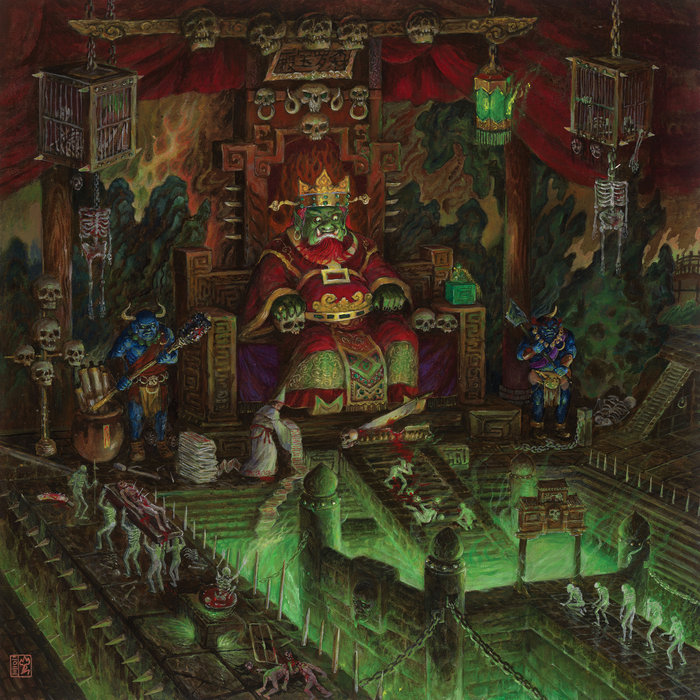
Obviously Ripped to Shreds whips ass whether you read the lyrics or not, but as a political history nerd, the lyrical content definitely did draw me in. Can you tell me a bit about the lyrical shift on Sanshi? It seems much more gore-focused, with a good deal of Chinese folklore thrown in (shout out to Yan Luo Wang).
Leading up to the writing of this album I’d been having an existential crisis and started exploring traditional Chinese conceptions of death and the afterlife. A central tenet is reincarnation/rebirth, but what does that process actually look like? The Chinese afterlife and cleansing souls of sin is super brutal and violent, and I thought it went well with the tropes of death metal.
I also thought historical lyrics tend to be drier and less emotionally expressive. I can create a mental image of these hellish tortures and write about my hypothetical experience with being dipped into a vat of boiling oil, but it’s harder for me to insert myself into actual historical events and talk about them from that point of view.
Songs like "Perverting the Funeral Rites" and "Corpse Betrothal" scream death metal, but aren't just horror movie gimmicks—they describe actual Taiwanese and Chinese social/religious practices, like ghost marriage and funeral strippers. Can you go into the real-world inspirations behind these songs?
Taiwanese funerals are about giving the deceased face, and one way that manifests is the amount of people attending the proceedings. The more people show up, the greater the deceased’s prestige. There’s also got to be the proper atmosphere, and professional mourners are found in all cultures across the world. So I believe funeral strippers are an outgrowth of professional mourners combined with spectacle and bringing more attendees to a funeral. I think it’s kind of a “country bumpkin” thing though, and mostly associated with very rural areas or gangsters, rather than being a mainstream event.
Ghost marriage is more mainstream, although I don’t know of any relatives who have had one. Marriage is one of the most important duties for a son, so they can pass on the family name, and if they die before marriage, the family’s line would be broken. Marrying a living daughter to a family would also allow them to adopt a son (usually related) to continue the family line. Marrying a living son to a family gives the deceased daughter descendants who can perform ancestor worship. The actual rules and customs around this are a bit obscure to me, in the song I took a more horror movie approach where a living woman is kidnapped for ghost marriage. However, there are documented cases of grave-robbing to obtain human remains for the nuptials.
Meanwhile, HGT is something very, very different. I know very little about anime, so I know I'm already way out of my depth already, but for the sake of my readers who are in a similar boat, can you explain why you decided to put together an anime-themed goregrind project?
The simple answer is my buddy Harlan asked me to fill in on second guitar for his band Extremely Brutal at Anti-music Fest in Ohio, and I had so much fun learning the set I wanted to start my own project in the same vein. I like horror movies well enough but I’m definitely not a connoisseur, and so many other bands have horror samples that I didn’t want to retread that ground.
Same with the cover art; gore is hardly transgressive like it would have been 40 years ago, and even less so in DIY releases where there aren’t any major distributors or regulatory bodies trying to censor the artwork. I’ve also found that a lot of people refuse to check out HGT just because it has anime art, which greatly amuses me.
There are far more metal bands with anime themes or anime-inspired lyrics out there than I realized - at least 87. The majority seem to be stuck on the hentai/general porn stuff, but a few others seem at least as sincere as HGT. Do you have thoughts on any of them? Is there an entire anime metal world out there bubbling beneath the surface?
I believe there’s a doujin metal community based around Touhou, as well as bands that only exist on Japanese language internet through Nico Nico or published through Melonbooks, but the stuff that exists in the English world that I can actually access, being deathcore, EUPM, trance metal etc, is not music I enjoy. I like Tanpopo Crisis’ Millennium Flower and Evol’s 私だけのGrindcore, but I’m not really sure how they’re using anime beyond the cover art.
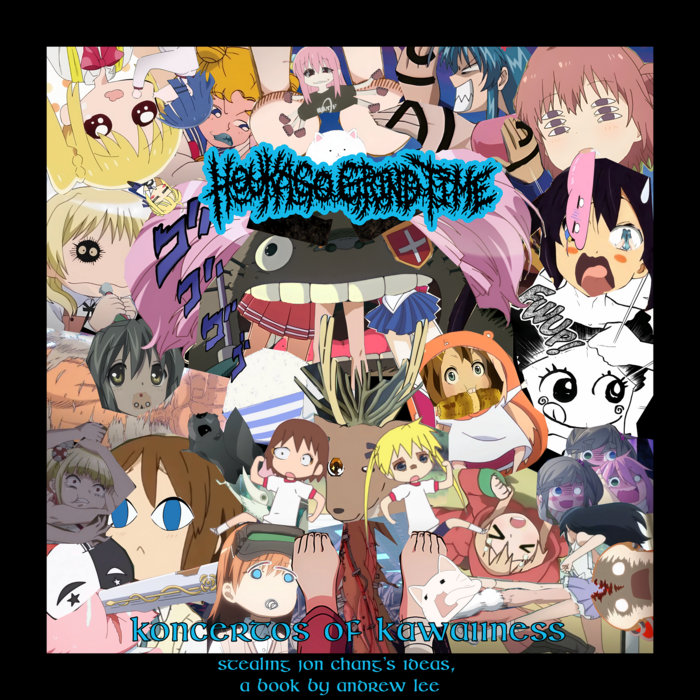
Babymetal's debut was probably the last time anything resembling an anime/metal crossover event hit the mainstream, but while HGT isn't headlining Budokan (yet), you seem to have tapped into a very real segment of multiple overlapping online fandoms. Anime itself is an enormously popular global phenomenon; metal is too, but on a much smaller scale. Outside of the specific art they enjoy, in terms of the ways they operate online and IRL, just how different are weebs from metalheads... if at all?
I think weebs and metalheads both hyperfocus on their niche interests, and in the early formative years of their respective communities, were totally rejected by the mainstream. And from that rejection, I think both weebs and metalheads gained a persecution complex and took perverse pride in their being anti-normie, and leaned into those anti-normie traits even harder. For metalheads, I think a lot of the old guard consider anything “extreme” to be good: Nazis are extreme and anti-normie, therefore NSBM is great for metal. Similarly, many older weebs consider loli/shota fanservice to be a great punchline because it shocks and repulses the normies. And really, considering the open embrace of Inquisition playing fests again by so many self-proclaimed “traditionalists” and “pedo-killers,” are those metalheads any different from weeb lolicons? I think any community that defines itself by its outsider status is going to have similar problems with incubating antisocial behavior.
But on a more positive note, I think the way those DIY communities have traditionally operated, with VHS/tape trading, sharing rare bootlegs, creating doujin/fanart/tribute bands, collecting merch, are very similar and all borne out of a sincere love for their interest.
You've been very vocal about the problem of anti-Asian racism in the metal community. How has your experience shifted - if at all - as your bands have gotten bigger and you've played more shows in more places? In terms of diversity and acceptance, is the vibe at a RTS show different from a HGT show?
I think it really depends on the age of the crowd. Older crowds are the same as ever, asking awkward questions and being generally unaware. I think HGT pulls a more diverse and accepting crowd, but mostly as a function of appealing to a younger audience. I feel like with the anime meme samples it’s also a bit more of a party vibe and the “tupa tupa” mince beats lets people dance. But when RTS plays mixed bills with hardcore bands, which heavily skews towards a younger audience, it’s a pretty similar vibe to HGT.
Who are a few other Asian and Asian American metal bands that people should be stoked on right now?
HARM from Los Angeles just put out one of the sickest grind albums of the year on 625, featuring the drummer from Hoy Pinoy and Crom. Vacuous got signed to Relapse which is sick as fuck, they’re a death/doom band and their singer is Chinese. On the last HGT tour with Myxoma (Taiwan) to the UK, we played with a band called CHOU, a powerviolence band formed by Chinese international students in Edinburgh. I’m also working with a death metal band from Taiwan called Aohen, producing their next album and they should be coming on tour with RTS in Asia.
Have you seen a lot of crossover between RTS and HGT fans?
I think most of the crossover is where the fans heard of RTS first and then checked out the associated projects. I’m not sure how many fans go the other way round, or at least I have yet to meet anyone who tells me they got into RTS from HGT! I think the two projects have a very different aim; with RTS I want to create sick riffs but also tell an emotional story through those riffs, whereas HGT is all about smashing your face with a cute brick.
What's coming up for you in 2025?
First up is the RTS spring west coast tour. Then HGT is playing Obscene Extreme in July and I’m still waiting to see if Myxoma can come on tour with me across Europe for that, and at the end of the year RTS goes to Japan and Taiwan. Crossing my fingers I’ll have the new Heavy Metal Shrapnel album finished and out next year as well.
+
Stream 'Koncertos of Kawaiiness: Stealing Jon Chang's Ideas, A Book by Andrew Lee' here, subscribe to Salvo here, and get an earful of Houkago Tea Time here!
